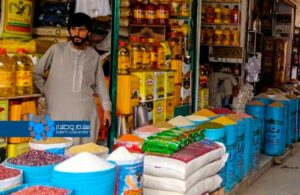KABUL (SW) – The Office of the United Nations Assistance Mission in Afghanistan (UNAMA) has stated that climate change has had negative effects on Afghanistan’s water resources and has made it difficult for people to access drinking water.
According to UNAMA, last year, the number of families in Afghanistan who were facing water shortage reached 60%.
In a part of UNAMA’s tweet, it is stated: “60% of families were facing water scarcity in 2022, and about 479 million dollars are needed in 2023 to control water.”
Meanwhile, Gholam Hossein, a resident of Karte Ariana in Kabul, who was standing in a long line to get drinking water, said that in this area, the water wells have dried up and people have to wait in line for hours to get water. According to him, there is no water in this area up to 100 meters deep, that’s why their water well, which was 80 meters deep, has dried up.
Nader, a resident of Shahr Aara area of Kabul, also said that there has been no water in this area through the government water supply networks for more than two weeks and he is forced to provide the water needed by his family through private water supply companies.
Residents of those parts of the capital, which are facing a shortage of drinking water, urged the government officials to provide the people with access to water.
Officials of the Ministry of Energy and Water say that due to climate changes, the underground water in Afghanistan has decreased and including Kabul, the residents of most provinces are facing a shortage of water, especially drinking water.
Ammar Mamouzi, the head of the Ministry’s water supply department, said that after the establishment of the Islamic Emirate, no major water supply project has been launched by international institutions in Afghanistan.
A number of environmental experts say that the excessive use of underground water is one of the main reasons for the reduction of water in the capital. Abdul Hadi Achakzai, an environmental expert, said that water must be managed and to compensate for the lack of drinking water, small and large dams must be developed throughout the country.
The Ministry of Energy and Water previously said that in order to provide Kabul residents with access to drinking water, it was working on a project to transfer water from the Shah Wa Uros Dam, the Panjshir River, and the Qargha Dam.
ENDS






